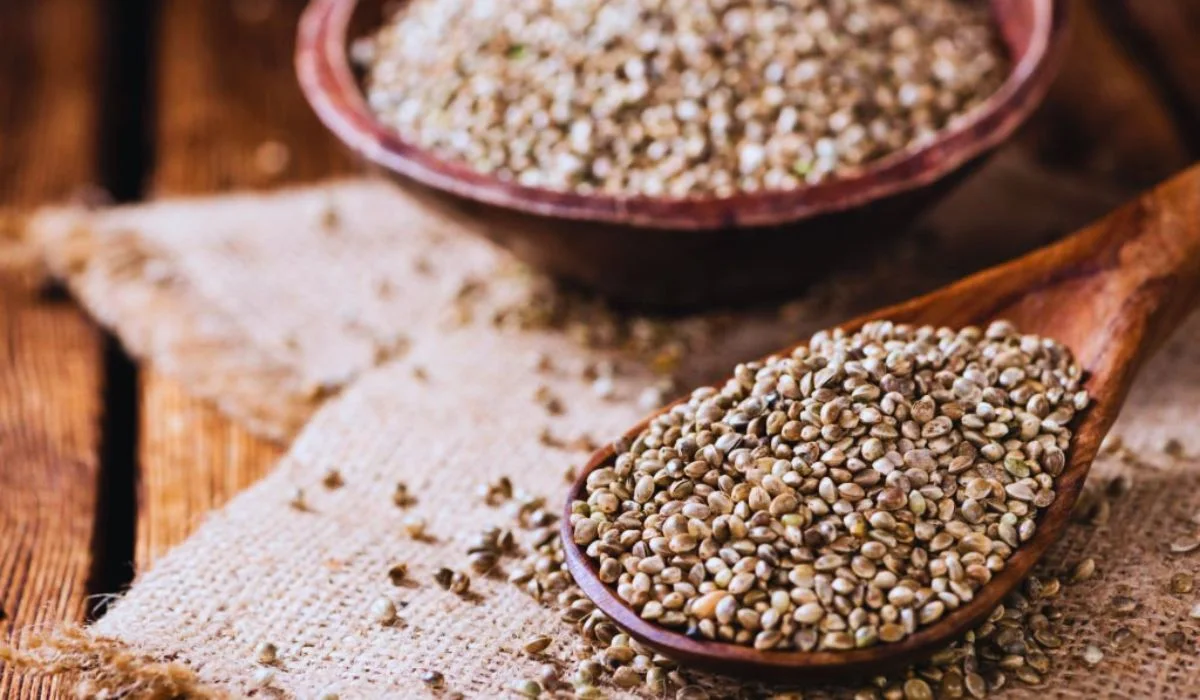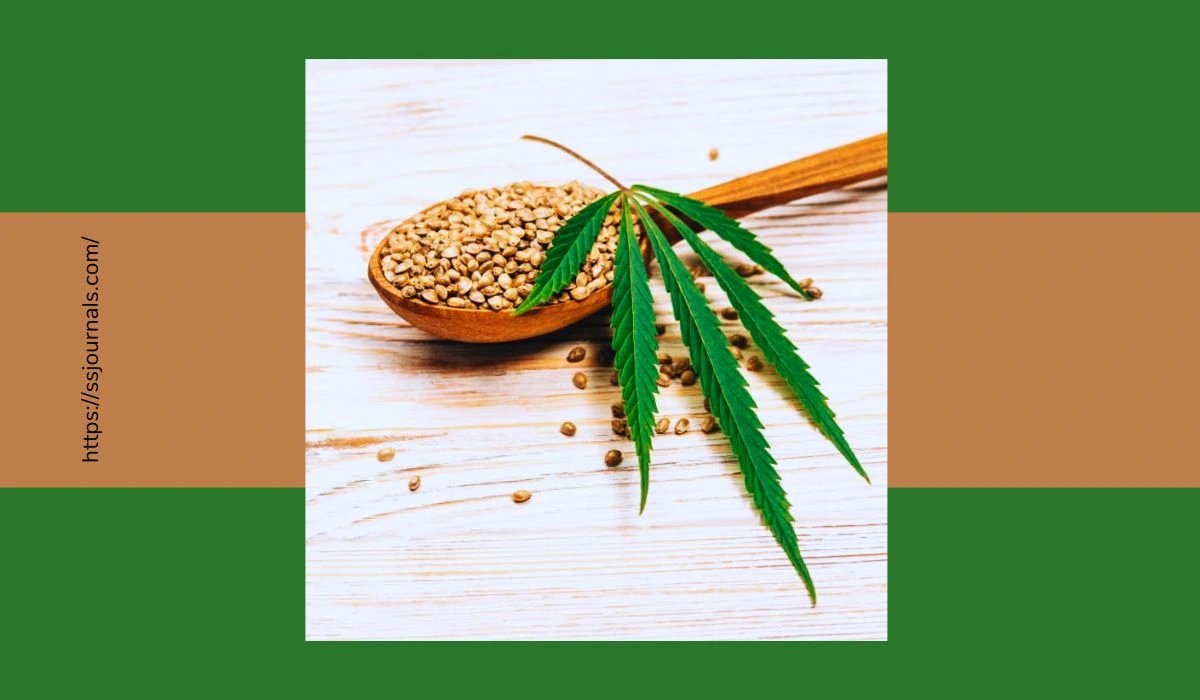Hemp seeds, also known as hemp hearts, are the seeds of the hemp plant, Cannabis sativa. Though hemp and marijuana come from the same species of plant, hemp seeds contain only trace amounts of THC, the psychoactive compound found in marijuana.
Instead, hemp seeds are a highly nutritious food source, packed with protein, healthy fats, vitamins, and minerals. In recent years, hemp seeds have been gaining popularity as a health food, popping up in grocery stores, restaurants, and health food stores. Read on to learn more about the nutritional value and health benefits of this superfood.
Nutritional Value Of Hemp Seeds

Hemp seeds are considered a superfood because of their stellar nutritional profile. Here are some of the key nutrients found in hemp seeds:
- Protein: Hemp seeds contain 10 grams of protein per 3 tablespoons, providing 20% of the Daily Value. The protein is easily digested and considered a complete protein source, meaning it contains all the essential amino acids.
- Healthy fats: Hemp seeds are especially high in polyunsaturated and omega fatty acids, such as omega-3 and omega-6. They provide the ideal ratio of omega-3 to omega-6. These healthy fats have been shown to support heart and brain health.
- Fiber: A serving of hemp seeds has 1-2 grams of fiber. Fiber helps regulate digestion and promotes feelings of fullness.
- Vitamins and minerals: Hemp seeds contain high amounts of vitamin E, phosphorus, potassium, magnesium, iron, and zinc. They are also a good source of B vitamins.
With this stellar nutritional makeup, it’s no wonder hemp seeds offer an array of potential health benefits.
Understanding The Health Benefits Of Hemp Seeds
Research has found that incorporating hemp seeds into your diet may provide the following benefits:
- Heart health: The fiber and healthy fats in hemp seeds have been shown to help lower blood pressure and cholesterol levels, reducing the risk of heart disease. The omega-3s may also improve heart rhythm and decrease inflammation.
- Brain health: Hemp seeds are rich sources of omega-3 and omega-6 fatty acids that are critical for brain function. The seeds may aid memory, mood, and focus.
- Digestion: The fiber in hemp seeds promotes healthy digestion and helps prevent constipation. The seeds are especially beneficial for people with irritable bowel syndrome (IBS).
- Weight management: Hemp seeds provide protein and fiber, which induce feelings of fullness. This may prevent overeating and lead to healthy weight management.
- Immune system support: The nutrients in hemp seeds boost immunity by providing antioxidants, minerals, and healthy fats that fight inflammation and cell damage.
- Bone strength: Hemp seeds offer calcium, iron, zinc, and magnesium to help maintain bone mineral density as you age.
- Skin health: The fatty acids and vitamin E in hemp seeds hydrate the skin, reduce irritation, and may treat symptoms of eczema and acne.
How To Consume Hemp Seeds Properly?
There are endless ways to enjoy nutritious hemp seeds. Here are some simple tips:
- Add them to smoothies, oatmeal, yogurt, cereal, or salad for extra nutrition, protein, and fiber.
- Mix them into pancakes, waffles, muffins, or bread batters. They add great texture.
- Use hemp seed oil for cooking, drizzling on dishes, and making dressings and dips.
- Sprinkle roasted hemp seeds on top of dishes for a crunchy garnish.
- Make hemp seed milk at home by blending seeds with water.
- Opt for hemp-based protein powder, butter, and other products.
When buying hemp seeds, look for whole seeds rather than split kernels or defatted hemp powder. Store hemp seeds in an airtight container in the fridge or freezer. Consume within six months. Enjoy hemp seeds raw or roasted for maximum nutrition.
Conclusion
With an impressive amount of protein, fiber, vitamins, minerals, antioxidants, and healthy fats, hemp seeds are worthy of being called a superfood. Consuming hemp seeds regularly may help lower cholesterol and blood pressure, increase energy levels, build stronger bones and immune systems, and keep your skin glowing.
Adding just a few tablespoons of hemp seeds into your foods and smoothies each day can boost your intake of essential nutrients that support your overall health and well-being. Thanks to their pleasant, nutty taste and versatility, incorporating hemp seeds into your diet is easy and delicious.
FAQs
A: Yes, hemp seeds sold in the US must contain less than 0.3% THC, the psychoactive compound found in marijuana. Hemp seeds themselves do not cause any psychotropic effects.
A: Yes, hemp seeds are 100% gluten-free and safe for people with celiac disease or gluten intolerance.
A: Hemp seeds can be consumed whole or ground. Whole hemp seeds provide fiber, while ground hemp seeds are easier to digest. Choose based on your preference.
A: Unopened hemp seeds can last 12-14 months in the pantry. Once opened, store them in the fridge or freezer, where they will last 6 months. Check for freshness before consuming.
A: Hemp seeds contain digestive-resistant compounds that could cause gas and bloating in some individuals, especially when eaten in large amounts. Start with small servings to assess tolerance.

